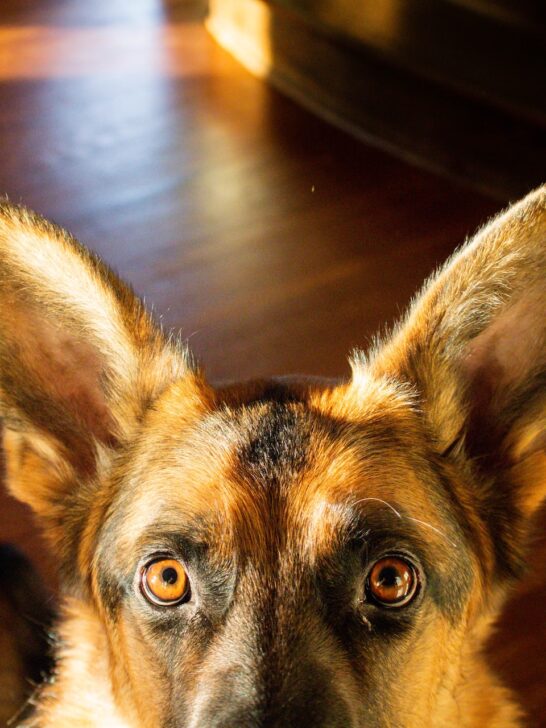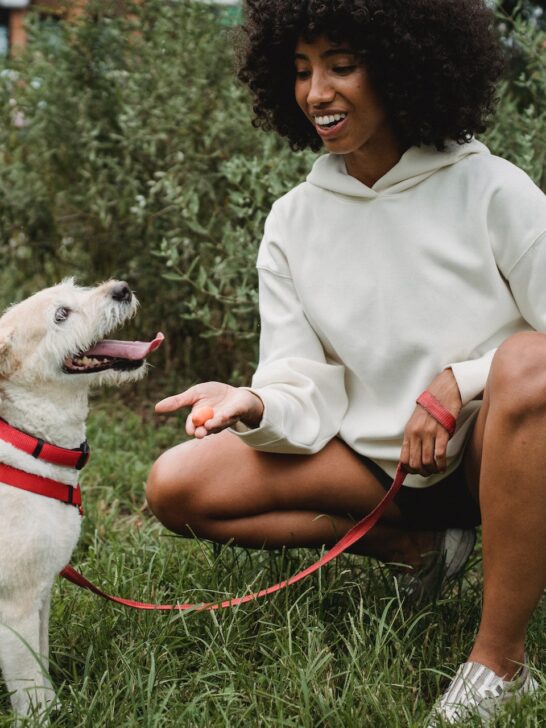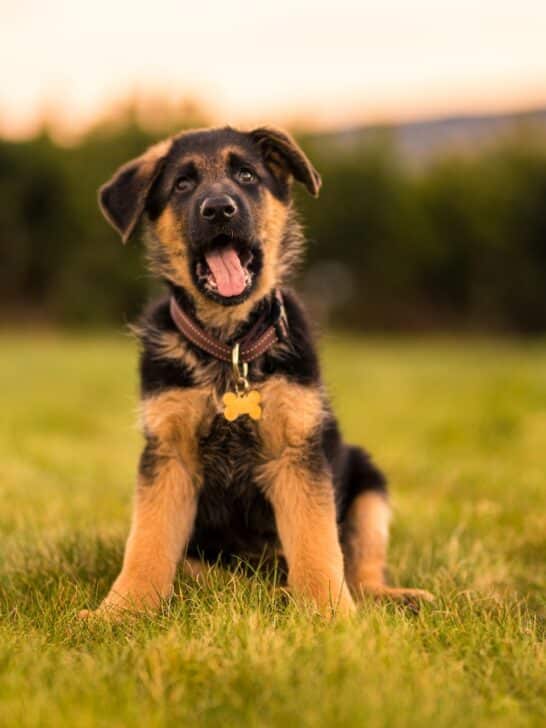4 Most Common Health Issues In German Shepherds & What To Do About Them
German Shepherds are a popular large breed of dogs. This breed is very loyal, energetic, and make great family pets.
If you own a German Shepherd, it is best to know about a few of the health issues that are seen with this breed.
While German Shepherds are a very hearty and healthy dog breed, there are a few health and genetic issues that can be seen in this breed.
Hip Dysplasia
Hip dysplasia can be seen in young or older German Shepherds.
This happens when your dog’s hip joint does not develop properly, causing their hip to pop in and out of place.
This movement of the hip joint can cause the extra bonny formation and arthritis to develop.
Common signs that are seen with German Shepherds who have hip dysplasia are:
- Limping
- Having trouble standing up
- Not putting weight on one leg
- Shorten gait
If you notice any of these issues, it would be best for your German Shepherd to see your vet.
They can examine your dog and take x rays to see if your dog does have hip dysplasia.

Treatment of Hip Dysplasia
If your dog does have hip dysplasia, your vet may want to start them on pain medication or joint supplements.
In severe cases, your vet may even recommend that they have surgery on their hips.
There are two different types of surgery that can be done to help decrease the pain that is caused by hip dysplasia.
Total Hip Replacement
This is done very similarly to a hip replacement surgery in people. The hip joint will be completely replaced with a new artificial joint.
This will enable your dog to be able to function without any pain in this joint.
This type of surgery would need to be done at a veterinary surgical hospital by a specialist.
Femoral Head and Neck Osteotomy
This surgery removes the femoral head so that there is no pain from the two bones rubbing together.
This procedure can usually be done at a local vet clinic and will cost less.
If your dog does have hip dysplasia, the earlier you start any preventative measure or treatment, the better the outcome.
If you are purchasing a German Shepherd puppy, it would be best that you make sure that the parents are tested for hip dysplasia.
This will ensure that the parents are not passing poor genetic hips onto their offspring.
Bloat
Gastric Dilation and Volvulus is the medical term for bloat. This is when your dog’s stomach becomes full of air and flips over.
This can cause your dog to look bloated.
This is a medical emergency, and you should take your dog to a vet right away. Commons signs of bloat in dogs are:
- Bloated abdomen
- Difficulty breathing
- Vomiting
- Uncomfortable when laying down
If you notice these signs in your dog or suspect that they have bloat, it would be best for them to see the vet right away.
If it occurs after hours, you need to go to the emergency vet.
The vet can quickly examine your dog and see if they have developed bloat, and may recommend taking an x-ray.
There is a very distinguished air pattern that is seen in dogs with bloat on x rays.
Treatment of Bloat
If your German Shepherd does have bloat, your vet will recommend emergency surgery.
They will decompress your dog’s stomach with air and flip their stomach back into the normal location.
They will also perform a gastropexy and tack their stomach into the normal place to help prevent their stomach from flipping over again.
Bloat can be a life-threatening issue. Even with immediate medical attention, your dog can pass away from this condition.
After surgery, your dog will still be in critical condition and needs intensive care.
There are a few things that you can try at home to help prevent bloat, especially in breeds that are prone to bloat.
- Elevated feedings
- No exercising after eating for about 1 hour
- Busy bowls to slow down eating

These can help prevent your dog from developing bloat. Sometimes no matter how many preventative measures you take, your dog will still develop bloat.
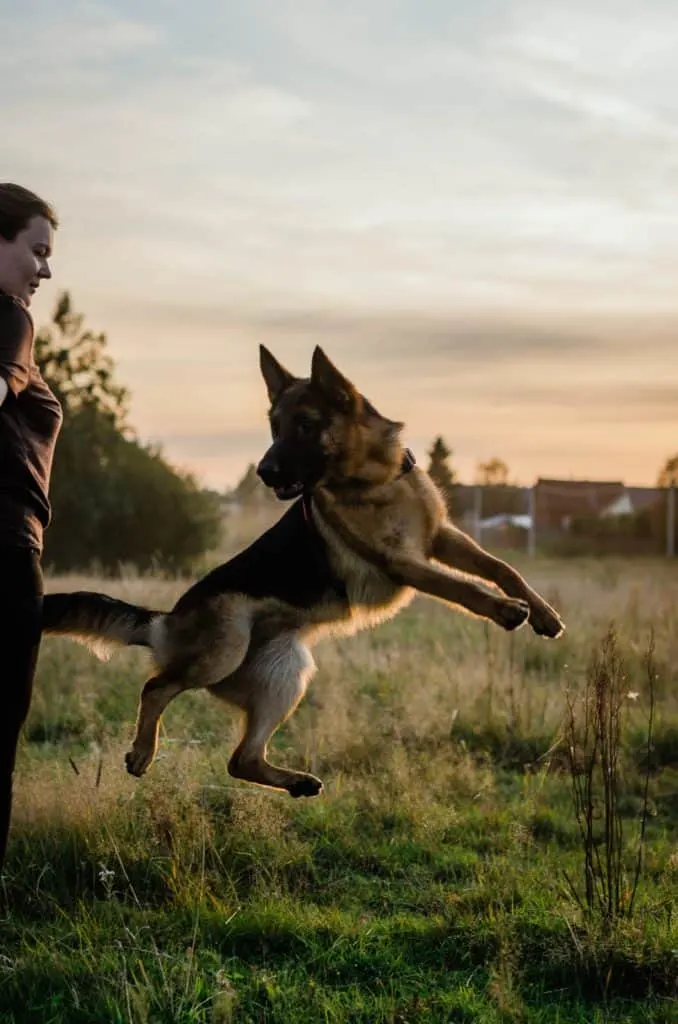
Cancer
Unfortunately, many dogs are prone to cancer, and German Shepherds can be prone to a few different types of cancer.
The two most commonly seen cancers in German Shepherds are:
Hemangiosarcoma
Hemangiosarcoma is a type of cancer that affects the blood vessels. This means that it can occur anywhere in your dog’s body.
This is most commonly seen on the spleen and liver.
If this affects the spleen, your vet can do surgery to remove your dog’s spleen.
Depending on where the mass is located, your vet can discuss different treatment options.
Osteosarcoma
This is a type of bone cancer that is seen in large breed dogs. This most commonly affects the knees, shoulders, and wrists.
This will cause swelling of the bone around these joints.
If you notice any swelling, it would be best for your vet to see your dog. They can take an x-ray of this area in your dog to see if bone cancer is present.
If your dog has bone cancer, the main treatment option is to remove the affected leg and to undergo chemotherapy.
Your vet can discuss the different treatment options and help you determine the best treatment for your dog.
ACL injury
Large breed dogs are more prone to tearing their ACLs. The Anterior Crucial Ligament, or ACL, is found in your dog’s knee.
This ligament is needed to hold the two bones in the leg in place, and allows your dog to walk correctly.
If your dog is playing or running, they can easily tear this ligament. Signs that your dog has torn their ACL are:
- Sudden non-weight bearing lameness
- Pain and inflammation around the knee
- Difficulty standing
- Limping
If you notice any of these signs, it would be best for your dog to see your vet right away.
Your vet can examine your dog’s knee and take x-rays to see what is causing these symptoms.
Many times your dog will need to be sedated in order to fully examine the knee.
If your German Shepherd does have a torn ACL, they will have drawer signs in the knee.
This means that your vet will be able to freely move the two leg bones back and forth.
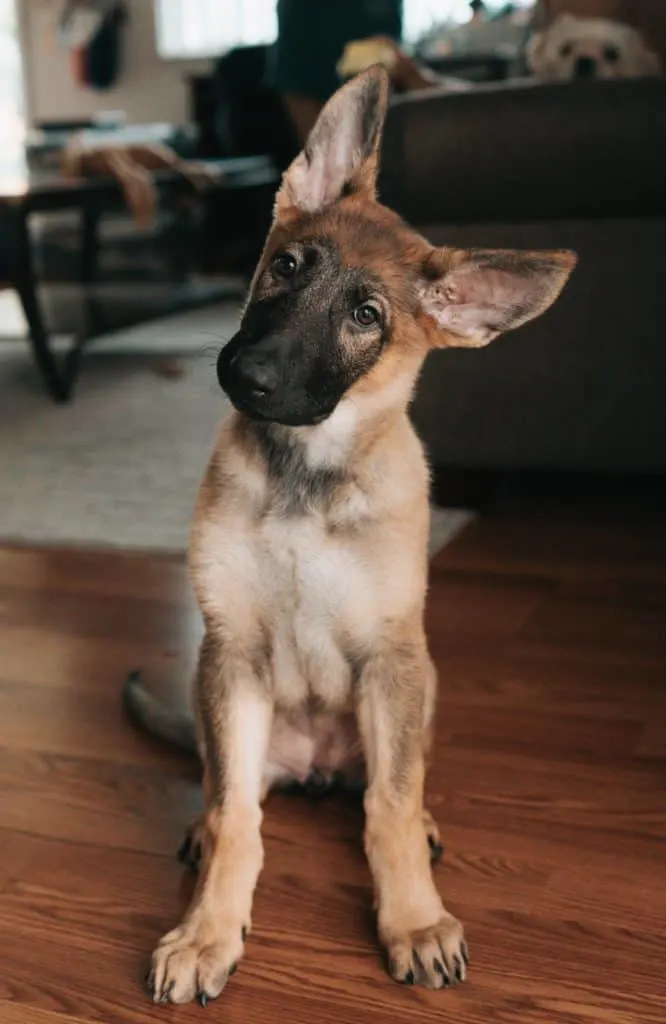
Treatment for ACL injuries
If your dog does have a torn ACL, they will need surgery to fix this issue.
There are many different orthopedic surgery options depending on the severity of the injury, and if there are any other issues going on with the knee.
The most common procedure done on torn ACLs is a tibial plateau leveling osteotomy (TPLO).
This procedure will most likely be done by a veterinary surgeon.
With surgery, your dog can usually return to normal after a few months of rest and rehab.
You can prevent this issue in your dog by keeping them active and fit.
If your dog is overweight, this can place extra pressure on their joints, leading to an increased risk of many health issues.
Common Health Issues In German Shepherds – Keeping Your GSD Healthy
The best way to help keep your dog healthy is with preventative measures.
Since German Shepherds are prone to joint issues and arthritis, it would be best to give your dog Glucosamine and chondroitin supplements each day.

This will help decrease any pain and inflammation, and help prevent them from developing arthritis.
You can also help keep your German Shepherd healthy by feeding them a well-balanced diet in order to keep them at a healthy weight.
If your dog is overweight, many health issues can develop due to this extra weight.















